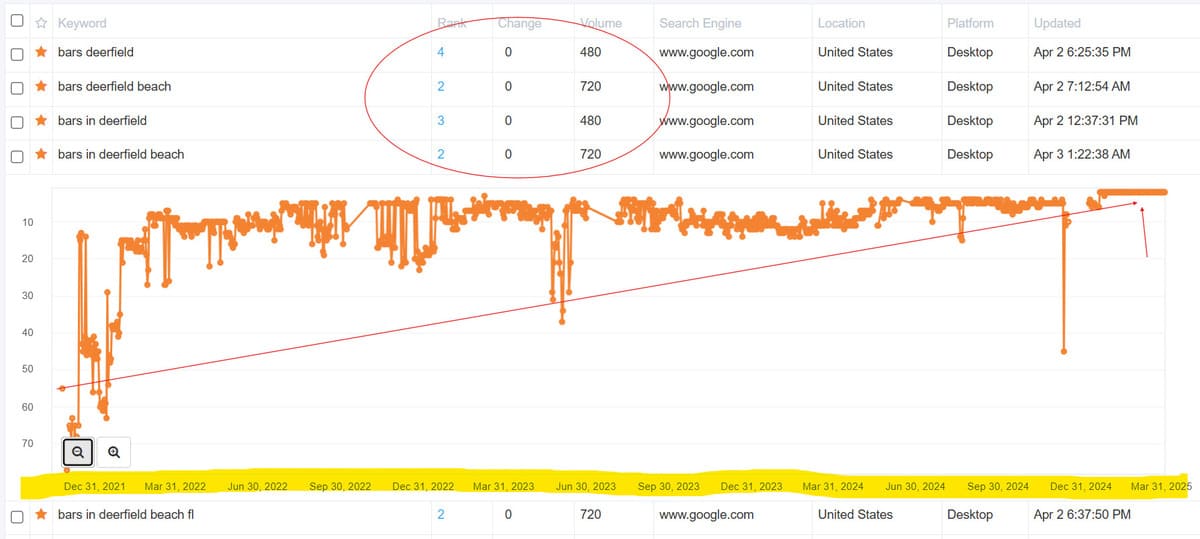Are you settling for the same-old, same-old?
You can’t reach new heights if you’re stuck in a rut.
During the course of your day, there are countless things you do without even thinking – everything from breathing to brushing your teeth. With the fast-paced demands of today’s business world, it’s easy to develop mindless routines at work, too. And, while it may be ok to let your thoughts wander while you’re doing certain tasks, there is a danger in allowing too many rote activities to fill your schedule.
When you become too set in your ways, you are closing the door on growth and opportunity. You may also be sending a message to your employees that you value process over results.
It’s easy to get into a rut. It’s not as easy to break out of one – whether it’s something as harmless as taking the same route to work every day, something almost all of us do, or something dangerous – like always lighting up a cigarette when you have a cup of coffee. You may be sticking with the same insurance policy or SEO company instead of exploring the possibilities to see if you could find a better rate or a more affordable SEO company.
“When you are in a rut, you have mindlessly outsourced your brain’s executive control to these cues. You run on auto-pilot,” William R. Klemm Ph.D., explained in an article about breaking bad habits on PsychologyToday.com.https://www.psychologytoday.com/blog/memory-medic/201304/getting-out-rut-break-bad-habits “It is easier to respond to such cues reflexively than think about it and do something else.”
But what would happen if you did make the effort needed to respond differently?
Try taking a different path home from work today. Maybe you’ll spot a new restaurant that you’d like to try or spot a dry cleaner in a more convenient location than the one you currently use. Or maybe in a gap between buildings, you’ll be rewarded with a glimpse of a gorgeous sunset.
Engaging your conscious mind can produce all kinds of benefits.
Todd B. Kashdan, professor of psychology and senior scientist at the Center for the Advancement of Well-Being at George Mason University, looked at the question from the perspective of travel in a posting on the Harvard Business Review’s bloghttps://hbr.org/2018/01/the-mental-benefits-of-vacationing-somewhere-new. “We often choose to spend our hard-earned dollars for comfort, predictability, and relaxation, and there are benefits to doing so,” he said. “But as a psychologist, I believe that travel should routinely be used to achieve the opposite: to get out of your comfort zone, expose yourself to uncertainty, and eschew rest for exploration and learning. The result is personal growth — greater emotional agility, empathy, and creativity.”
As Kashdan pointed out, there can be benefits to having routines and habits – not the least of which is the avoidance of decision fatigue (yes, it’s a thing!). But there’s a fine line between a rut and a habit.
The definition of habit is: “a settled or regular tendency or practice, especially one that is hard to give up.” So, a habit isn’t necessarily a bad thing – maybe you’re in the habit of walking the dog every morning or sharing a pizza with your kids on Friday nights. Just be sure you’re being honest with yourself.
A rut is defined as “a habit or pattern of behavior that has become dull and unproductive but is hard to change.” There are plenty of other words you might be using to trick yourself into thinking you’re not in a rut. We have routines, follow patterns and go so far as to honor traditions. We have customs, norms, certain practices and rules. There are things we usually do and things we are wont to do.
If you want to keep up with the competition, you may need to climb out of the rut you’ve gotten into with your SEO company marketing. We are a leader among affordable SEO optimization companies, so if you’d like to review your options, we are here to help – whether you have questions about local SEO packages or the need for original content.





